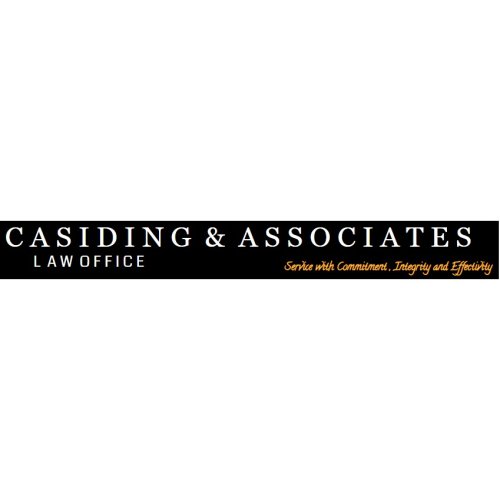Best Banking & Finance Lawyers in Philippines
Share your needs with us, get contacted by law firms.
Free. Takes 2 min.
Or refine your search by selecting a city:
List of the best lawyers in Philippines
Philippines Banking & Finance Legal Questions answered by Lawyers
Browse our 2 legal questions about Banking & Finance in Philippines and read the lawyer answers, or ask your own questions for free.
- Is an OFW /expatriate in UAE with an existing bank loan can have a travel ban order in our country?
- I was an OFW in UAE and was included in a company mass termination. I haven't finished my bank loan and my computed gratuity was not enough to settle my loan so upon getting the email I exited UAE to another country & after a year went back to Phil.... Read more →
-
Lawyer answer by Islaw - Expert Lawyers
Hi, there may be a helpful answer of your querry. Unpaid personal loans or credit card debt (even if it's from a UAE bank) are considered civil cases, not criminal offenses under international law. Interpol is usually involved only for...
Read full answer - Is it really possible to collect a debt thru filing a case?
- I am planning a case against a friend who has multiple swipes on my credit card but failed to pay me. Initially, she was a good payer but something happened and she stopped paying me. The total number of swipes was a huge amount. I also have an investment in... Read more →
-
Lawyer answer by Starlion Legal
What country are you in? Yes, you can make a claim in court for this in a small claims court.
Read full answer
About Banking & Finance Law in Philippines
The banking and finance sector in the Philippines is a critical component of the national economy, governing financial transactions both domestically and internationally. Banking & Finance law in the Philippines covers a wide range of activities including the regulation of financial institutions, lending practices, securities, and investment management. The Bangko Sentral ng Pilipinas (BSP), or the Central Bank of the Philippines, plays a central role in implementing monetary policy and financial regulations. It ensures stability and consumer protection within the banking sector and oversees compliance with local laws.
Why You May Need a Lawyer
Engaging with the Banking & Finance sector often involves complex legal frameworks and numerous regulatory requirements. Here are some common situations where you may require legal assistance:
- Setting up and structuring loans or credit agreements to ensure compliance with applicable laws and regulations.
- Navigating legal issues related to the acquisition, merger, or restructuring of financial institutions.
- Assisting with regulatory compliance concerning anti-money laundering (AML) and terrorism financing laws.
- Handling disputes over loan agreements, interest rates, or financial transactions.
- Dealing with insolvency issues or financial distress situations for corporates or financial institutions.
- Ensuring proper contracts and documentation for investment portfolios and securities transactions.
Local Laws Overview
The banking and finance industry in the Philippines is primarily governed by several key regulations and laws:
- General Banking Law of 2000: This law outlines the operations and governance of all banks established in the Philippines, ensuring that they are financially sound.
- The New Central Bank Act: Governs the Bangko Sentral ng Pilipinas (BSP) and outlines its responsibilities in regulating the financial sector.
- Anti-Money Laundering Act: Establishes the legal framework for detecting and preventing money laundering activities in the Philippines.
- Securities Regulation Code: Provides the rules for the trading of securities, aimed at protecting investors and maintaining fair markets.
- Foreign Investment Act: This law regulates foreign investments in the Philippines to align with national interests.
Frequently Asked Questions
What entities are regulated by the Bangko Sentral ng Pilipinas (BSP)?
The BSP regulates all banks, non-bank financial institutions with quasi-banking functions, and financial affiliates of banks and quasi-banks in the Philippines.
What is the primary purpose of the Anti-Money Laundering Act?
The Anti-Money Laundering Act aims to prevent money laundering activities and to ensure compliance with international standards for combating financial crimes.
Can foreigners own banks in the Philippines?
Yes, foreign entities can own banks in the Philippines, subject to specific limitations and requirements as set forth by the BSP and other local laws.
What is the role of the Securities and Exchange Commission (SEC) in finance?
The SEC oversees and regulates the securities industry, ensuring transparent and fair trading practices to protect investors.
How does BSP ensure financial stability?
The BSP ensures financial stability by enforcing prudential regulations, monitoring economic trends, and providing oversight for risk management practices among financial institutions.
What are some common lending practices regulated by law?
Lending practices such as interest rate computation, disclosure of fees, and addressing borrower complaints are regulated to ensure transparency and consumer protection.
Are there restrictions on capital repatriation for foreign investors?
No, foreign investors are generally allowed to remit profits, dividends, and other capital gains, assuming compliance with BSP regulations.
Is it necessary to have local representation for financial transactions?
While not always required, having legal representation is advisable to navigate complex transactions and ensure compliance with local laws and regulations.
How can financial institutions deal with non-performing loans?
Financial institutions can restructure terms, sell the loans to institutions like asset management companies, or pursue recovery actions under the law.
What measures exist to protect consumer credit in the Philippines?
There are various consumer protection laws, including provisions under the Financial Consumer Protection Act, which mandate transparency and fair treatment in credit agreements.
Additional Resources
For those seeking further information or assistance, here are some helpful resources:
- Bangko Sentral ng Pilipinas (BSP): The central authority for banking regulations.
- Securities and Exchange Commission (SEC): Key regulator for securities markets.
- Anti-Money Laundering Council (AMLC): Responsible for implementing anti-money laundering policies.
- Department of Finance (DOF): Provides updates on financial policies and regulations.
- Philippine Deposit Insurance Corporation (PDIC): Provides deposit insurance to guarantee bank deposits.
Next Steps
If you require legal assistance in Banking & Finance, consider the following steps:
- Research: Begin your search online or through local directories to identify experienced banking and finance lawyers.
- Consult: Book consultations with a few lawyers to discuss your specific needs and understand how they can assist.
- Evaluate: Assess potential lawyers based on their experience, specialization, and pricing structure to ensure a good fit.
- Engage: Hire the lawyer who best aligns with your needs to help navigate legal complexities in banking and finance.
Lawzana helps you find the best lawyers and law firms in Philippines through a curated and pre-screened list of qualified legal professionals. Our platform offers rankings and detailed profiles of attorneys and law firms, allowing you to compare based on practice areas, including Banking & Finance, experience, and client feedback.
Each profile includes a description of the firm's areas of practice, client reviews, team members and partners, year of establishment, spoken languages, office locations, contact information, social media presence, and any published articles or resources. Most firms on our platform speak English and are experienced in both local and international legal matters.
Get a quote from top-rated law firms in Philippines — quickly, securely, and without unnecessary hassle.
Disclaimer:
The information provided on this page is for general informational purposes only and does not constitute legal advice. While we strive to ensure the accuracy and relevance of the content, legal information may change over time, and interpretations of the law can vary. You should always consult with a qualified legal professional for advice specific to your situation.
We disclaim all liability for actions taken or not taken based on the content of this page. If you believe any information is incorrect or outdated, please contact us, and we will review and update it where appropriate.
Browse banking & finance law firms by service in Philippines
Philippines Attorneys in related practice areas.
Browse banking & finance law firms by city in Philippines
Refine your search by selecting a city.

















